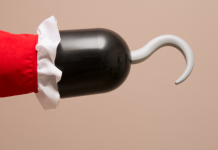 Family Planning (or unplanned…)
Family Planning (or unplanned…)
I was 21, my boyfriend was 19 and we had just moved in together. We weren’t planning on having any children, maybe not ever. We’d done a little research into long-term birth control and my doctor had strongly recommended the Skyla IUD. The statistics look great, (over 99% effective!) So I went for it. The first issue was that I was utterly unprepared for how painful insertion would be.
After that, I had other reasons to hate it. The mood swings were unmanageable. My menstrual cycles became horribly unpredictable. Then, it didn’t work.
I had had it for less than a year when I started experiencing nausea, every morning. I had such faith in the IUD I didn’t believe that pregnancy was even a possibility. It was my boyfriend who finally suggested I get a test. And he was right.
Choices
My doctor told me that the IUD had slid down slightly, enough to be ineffective but not enough for me to be able to tell that it wasn’t in the position to function. At that point, I was already seven weeks pregnant. It’s a controversial topic, but in those moments I was so glad that I had choices. I am STILL so grateful to to know that, while motherhood wasn’t the path I had planned, it is one that I willingly chose.
The Facts
I had such a false sense of security. I was so dangerously certain that pregnancy was not a possibility. Those statistics look great, but the rates at which they shift or are not inserted properly are not included in that impressive number. They are only effective if they are put in the right spot and stay there. It’s hard to find consistent numbers on how often they shift, and I am not big on anecdotal evidence but I know two other young women in this small town who had the same experience I did.
So, What Should You Do?
You’ve probably heard all the options before, I’ve tried and hated most of them. One that I recently learned about is the fertility awareness method (FAM). The basic gist is that by tracking your fertility signs you should be able to tell when you are fertile and behave accordingly. It’s not as simple as counting days, obviously, women aren’t standardized objects we don’t all have 28 day cycles and we don’t all ovulate on the same day during that cycle. There are other signs that you can track and record. I strongly recommend the book Taking Charge of Your Fertility, it’s on Amazon. Even if you don’t intend to use it to prevent (or achieve) pregnancy, understanding what your body is up to can be really empowering.
When it comes to your body and your reproductive choices, it is best to err on the side of understanding: the more you know, the better. With condoms, you know if they break, with the pill you know if you’ve taken it, with an IUD you have no way of knowing if it’s doing its job.









